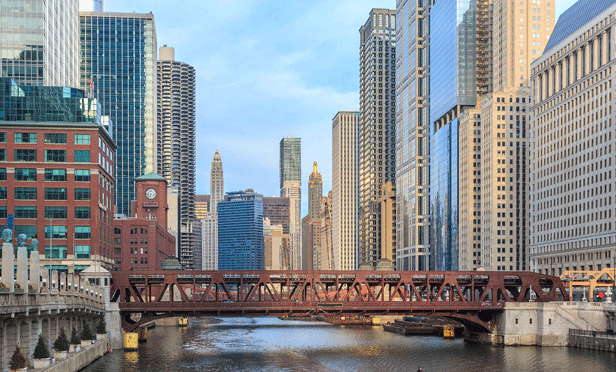WILMETTE, IL—In many asset classes, it is the large institutions that having been pushing cap rates down to record lows. But that's not the case for Quick Service Restaurants (QSR).
In the first half of 2019, private buyers accounted for more than 80% of QSR properties sold, which is an increase over the last two years, according to the Second Quarter 2019 QSR Net Lease Report by The Boulder Group.
"There's a lot more buyers out there that are in 1031 exchanges or in general at that [low] pricing level," Jimmy Goodman, partner for The Boulder Group tells GlobeSt.com. "The individual investor will pay a superior price for an individual asset."
Institutions are also very active in the sector, but they prefer to take down larger portfolios of assets. "If an institution buys a $1.5 million property, it doesn't move the needle at all for them," Goodman says. With continued institutional interest and surging private interest, QSR cap rates fell to 5.39%, down from 5.5% one year ago and 5.56% at mid-year 2017, according to the report.
In the second quarter of 2019, general retail net lease cap rates were 6.23% versus the QSR rate of 5.39%, providing an 84-basis point premium. That was a 20% increase in the premium from one year ago when there was a 70-basis-point spread, says the report. The 2019 spread in cap rates between corporate and franchise QSR leases—48 basis points—remained essentially unchanged from 2018 when the spread was 47 basis points.
Goodman points to a number of reasons for the strength of QSR, including the nature of fast food restaurants and their niche in the food service ecosystem.
"Food, especially the fast food sector, is definitely E-commerce resistant," Goodman says. "Investors like restaurants. They are easy to understand conceptually and, depending on who the guarantor is, there is usually some good credit behind them."
The lease terms in QSR also make them attractive investments, according to Goodman. "Restaurants are attractive to investors because typically their leases have rental escalations," he says. "That's why investors like the sector." Franchisee-backed leases typically provide reported sales, which can provide a real estate investor with much-needed transparency.
"A lot of times with commercial properties you don't know how well the tenant is doing, but you're still buying the asset," Goodman says. "In the restaurant category, it's more common than not that restaurants report sales or you can get financials on the actual tenant. So, it's a lot more transparent than some other properties where tenants do not report sales."
Goodman thinks QSR are poised to withstand any coming recession. "Even during the last recession, ten years ago, people still needed to buy food and obviously fast food is cheaper [than other restaurants]," he says. "I think this sector can definitely withstand the recession."
Want to continue reading?
Become a Free ALM Digital Reader.
Once you are an ALM Digital Member, you’ll receive:
- Breaking commercial real estate news and analysis, on-site and via our newsletters and custom alerts
- Educational webcasts, white papers, and ebooks from industry thought leaders
- Critical coverage of the property casualty insurance and financial advisory markets on our other ALM sites, PropertyCasualty360 and ThinkAdvisor
Already have an account? Sign In Now
*May exclude premium content© 2024 ALM Global, LLC, All Rights Reserved. Request academic re-use from www.copyright.com. All other uses, submit a request to [email protected]. For more information visit Asset & Logo Licensing.









